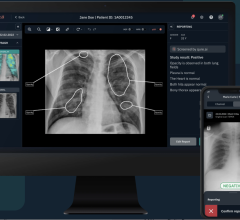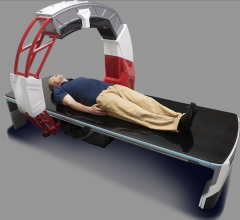December 6, 2010 – A panel of medical imaging experts discussed medical imaging appropriateness, ionizing radiation and efforts to curb overutilization, decrease radiation dose and educate patients.
Panel members included James A. Brink, M.D., professor and chairman of the department of diagnostic radiology at Yale University School of Medicine in New Haven, Conn., and co-chairman of the joint Adult Radiation Protection Task Force; William R. Hendee, Ph.D., professor of radiology, radiation oncology, biophysics and bioethics at the Medical College of Wisconsin in Milwaukee; and Christoph Wald, M.D., Ph.D., executive vice-chairman of the department of radiology at Lahey Clinic in Burlington, Mass., and associate professor of radiology at Tufts University Medical School in Boston.
The panel was moderated by Mary C. Mahoney, M.D., professor of radiology and director of breast imaging at the University of Cincinnati Medical Center and chair of the RSNA Public Information Committee.
“Medical imaging examinations are an invaluable, but complex, set of tools in the diagnosis and treatment of patients,” Mahoney said. “With this panel, we hope to address recent concerns about imaging, clear up some misconceptions regarding risk, and inform the public about what's being done to ensure their safety when undergoing medical imaging exams.”
The growth in medical imaging over the past two decades has yielded important and life-saving benefits to patients. It has allowed millions to avoid more invasive diagnostic and treatment procedures. However, overutilization can be detrimental to patients by exposing them to unnecessary radiation. Between 1980 and 2006, the annual U.S. population radiation dose from medical procedures increased seven-fold, according to the National Council on Radiation Protection and Measurements.
“Imaging procedures conducted for the wrong reasons contribute to unnecessary costs and radiation exposure to patients,” Hendee said. “Radiology is working to reduce unnecessary procedures, but some of the causes of overutilization are beyond radiology’s influence.”
Recent reports have drawn attention to the ionizing radiation associated with some imaging procedures, most notably computed tomography (CT). There is general agreement in the radiology community that certain procedures are associated with risks, which must be weighed against the benefit of the diagnostic information or treatment result. Radiologists and medical physicists continue to work together to lower radiation dose without sacrificing diagnostic quality. Efforts are also underway to better monitor patients’ cumulative radiation exposure from multiple imaging exams over time.
To increase awareness of cumulative radiation dose and other radiation risks and to explore opportunities to improve patient safety through appropriate utilization, quality assurance and dose optimization, RSNA has partnered with the American College of Radiology (ACR), the American Association of Physicists in Medicine (AAPM) and the American Society of Radiologic Technologists (ASRT) to launch the Image Wisely initiative. The goal is to increase awareness of cumulative radiation dose and other radiation risks and to explore opportunities to improve patient safety.
“Rising concerns about the radiation dose associated with medical imaging have prompted vigorous responses at many levels, but perhaps the most important response has been expanded educational activities focused on radiation dose monitoring and control,” Brink said. “Imaging professionals must pledge to reduce the radiation dose as much as reasonably achievable, to seek accreditation of imaging facilities with careful attention to radiation dose monitoring and control, and to participate in dose registries that will allow imaging practitioners to benchmark their dose levels with peer institutions.”
ImageWisely.org, directed at physicians and other medical professionals, was officially launched at RSNA 2010. The web site’s patient-directed content answers common patient questions about risks and benefits of medical imaging procedures.
“These web sites strive to provide the most comprehensive and up-to-date information about radiation safety from expert sources to help patients and their physicians make informed decisions when considering the use of powerful imaging tests which can potentially save lives, help determine whether a therapy is working or avoid an unnecessary surgery,” Wald said.
For more information: www.radiologyinfo.org


 August 09, 2024
August 09, 2024 








